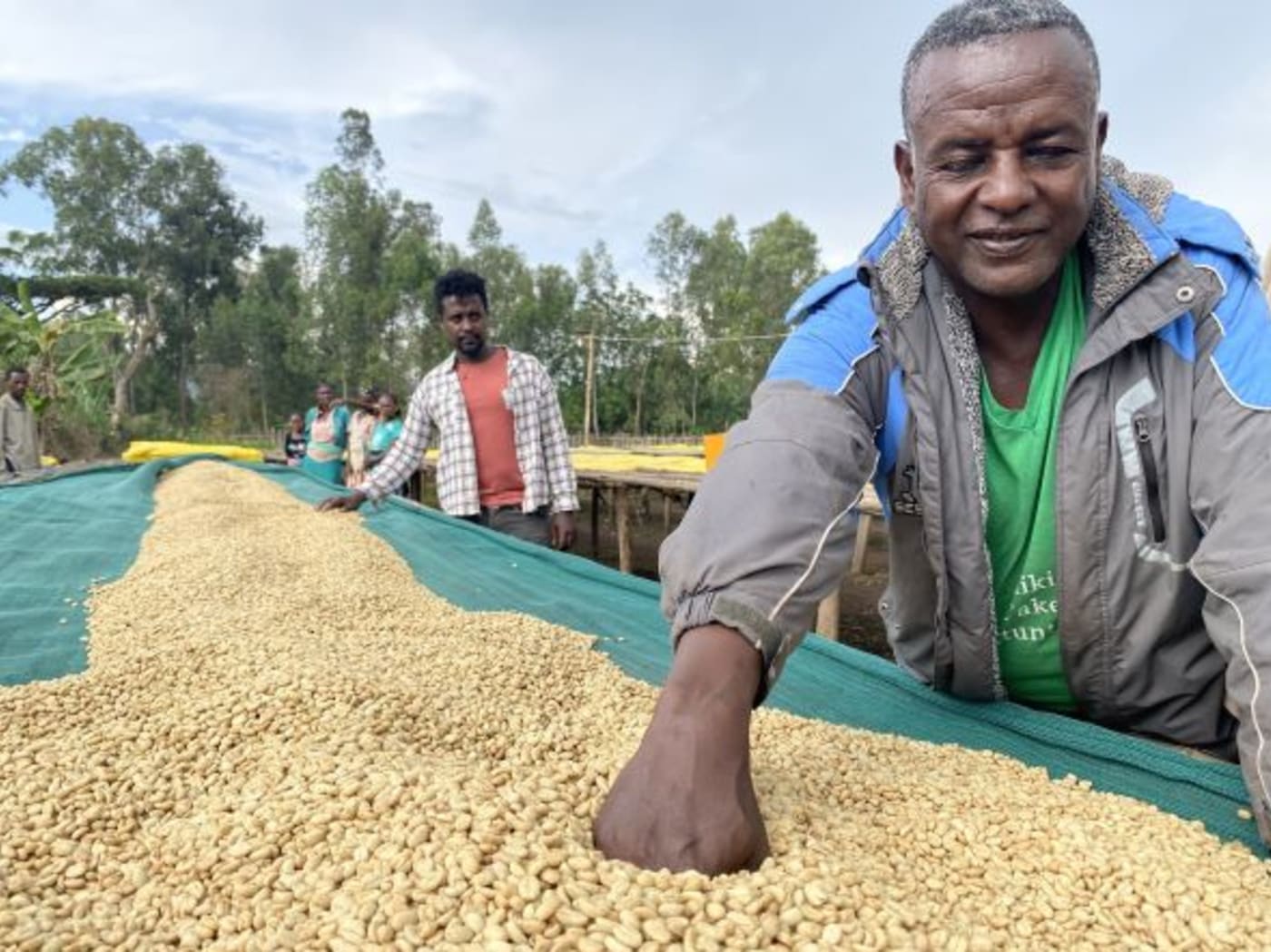After delivering the washed Kurume, Girma Sintayehu strikes again with another microlot of locally selected Ethiopian Heirloom subvarieties—74110 (70%) and 74165 (30%).
Single producers like Girma Sintayehu are rare in Ethiopia, where coffee produced in cooperatives dominates the national output.
Girma, a current member of Jabanto farmers group, started producing coffee in 1991 after spending several years trading other commodities between the Dilla and Biloya towns. Since then, he has become highly knowledgeable in harvest and processing techniques, constantly staying up to date with the latest trends and technology thanks to his close collaboration with the bureau of agriculture and research centre. This extensive experience has naturally led him to become a leader and organiser for the community of coffee growers around the region.

Girma Sintayehu and his son Getu Bekele in the background
Today, Girma grows coffee on his own 7-hectare farm in the village of Biloya, and sometimes contracts it from other producers near the Sashamene village where he can source different subvarietals.
This is a washed lot of Ethiopian Heirloom subvarieties 74110 (70%) and 74165 (30%), ground and harvested around the kebele (village) of Hamma, in the Gedeo area. These subvarieties were found and catalogued in the 70s at the Jimma Agricultural Research Center (JARC) to resist coffee berry disease (the prefix ‘74’ indicates that the selection and cataloguing occurred in 1974).
Once the ripe cherries arrive at the station, they are immediately pulped and soaked under water for 48 hours (this is the wet fermentation stage). Then, the mucilage (or outer layers) are removed using clean water and the clean parchment coffee beans are transferred to another tank where they stay submerged in water for 2-4 additional hours. Finally, a combined drying stage of over 10 days sees the beans reach a humidity level of ~10%—the green coffee is ready to store and await shipping.
All images and information about this coffee and producers have been kindly shared by its importer, Condesa CoLab, and edited by us, Sample Coffee (unless linked to or credited otherwise).
Our ‘sweet spot’ for opening each coffee bag and brewing its contents is during days ~15-35 post-roast date.
Learn more about our updated coffee aging recommendations.
Need any brewing tips?
Head to our brew guides and find your favourite filter method—or head straight to our single origin espresso recipe. If you have further questions, send us an email. We’re always keen to help.






